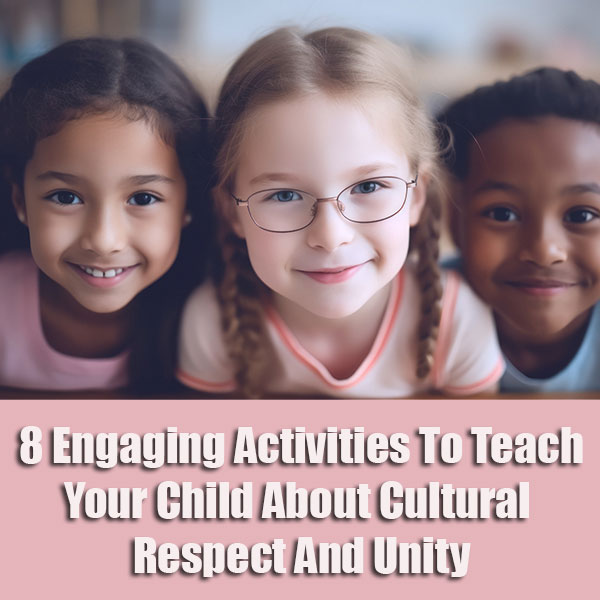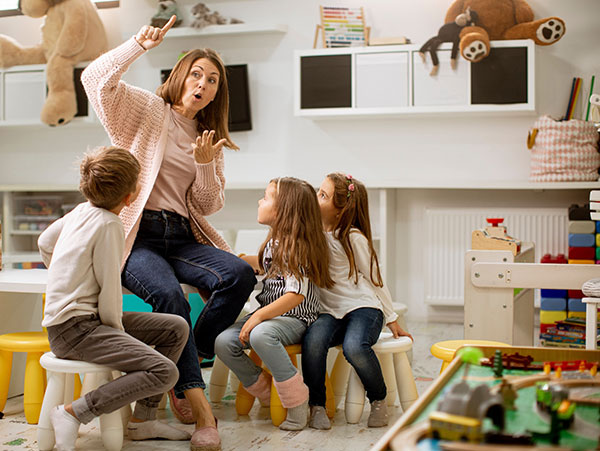Cultural respect and unity are fundamental values that contribute to a harmonious and diverse society. Teaching children about these concepts early can foster understanding, empathy, and a sense of global citizenship. Engaging children in activities that expose them to various cultures and perspectives can help them appreciate the richness of diversity and the importance of unity. This article explores engaging activities designed to teach children about cultural respect and unity, integrating these essential lessons into their development.
- Embracing Diversity Through Storytelling
Storytelling is one of the most powerful ways to introduce children to different cultures. Stories uniquely transport listeners to new worlds, offering insights into the lives, traditions, and values of people from various backgrounds. Parents and educators can spark conversations about cultural differences and similarities by selecting books that showcase diverse characters and settings. Discussions following the stories can encourage children to express their thoughts and feelings about what they’ve learned, further enhancing their understanding and empathy.
- Teaching Reconciliation Concepts to Kids
Discover the Reconciliation Program at Little Scribblers, which includes reconciliation concepts and Aboriginal/Torres Strait Islander cultural awareness as a core part of their early childhood education program. This program offers curated activities about reconciliation, cultural respect, and unity. Through these activities, children can learn about the importance of acknowledging and celebrating the histories and contributions of Indigenous peoples and other cultural groups. This enriches their knowledge and instills a sense of responsibility towards building a more inclusive community.
- Exploring Cultures Through Culinary Adventures
Food is a universal language that transcends cultural boundaries. Engaging children in culinary activities that explore different cuisines can be a delightful way to teach them about cultural diversity. Cooking together provides an opportunity to discuss the origins of various dishes, the significance of certain ingredients, and the traditions associated with meals in different cultures. This hands-on experience educates children about the world’s culinary diversity and encourages them to develop an appreciation for new tastes and flavors.
- Celebrating Diversity Through Music and Dance
Music and dance are expressive art forms that reflect communities’ cultural heritage worldwide. Introducing children to various musical styles and dance forms can be an exciting way to teach them about cultural respect and unity. Participating in dance workshops or attending musical performances that showcase different cultural traditions can inspire children to appreciate the beauty and uniqueness of each culture. Learning about the history and significance of specific music and dance forms can also promote a deeper understanding of the values and stories behind them.
- Crafting Together to Understand Cultural Symbols
Arts and crafts are wonderful tools for exploring cultural symbols and meanings. Engaging in craft projects that involve creating traditional items from various cultures can teach children about the significance of these symbols. Whether making Chinese lanterns, Aboriginal dot paintings, or African masks, these activities can open up discussions about the history, beliefs, and lifestyles of people from those cultures. This hands-on approach fosters creativity and helps children develop a sense of respect and appreciation for cultural diversity.
- Participating in Language Learning Games
Language is a key aspect of culture, and exposing children to different languages can broaden their perspectives and enhance their communication skills. Language learning games and apps offer a fun and interactive way for children to explore new languages. Children can learn basic phrases and greetings in various languages through songs, stories and games, which can spark their interest in further language study and cultural exploration. This introduction to multiple languages can cultivate a mindset of inclusivity and respect for linguistic diversity.
- Encouraging Participation in Community Service Projects
Involvement in community service projects that support multicultural communities can teach children the value of empathy and collaboration. By participating in initiatives that aid people from diverse backgrounds, children can learn about the challenges others face and the importance of working together to address societal issues. These projects can range from volunteering at cultural festivals to participating in programs that assist refugees or immigrants. Through these experiences, children can develop a sense of social responsibility and a commitment to promoting cultural respect and unity.
- Fostering Dialogues on Cultural Respect and Unity
Finally, creating regular opportunities for open dialogues about cultural respect and unity is essential. These discussions can occur in family settings, classrooms, or community groups, providing a safe space for children to share their experiences, ask questions, and express their thoughts on cultural diversity. Facilitating conversations about the importance of understanding, respecting, and celebrating differences can help children develop the skills and attitudes necessary for living in a diverse world. Children can learn how to navigate complex social situations with empathy and respect by discussing real-life scenarios and ethical dilemmas related to cultural interactions.
Final Thoughts
Integrating these activities into children’s lives can be crucial in nurturing a generation that values diversity, practices respect, and contributes to a more unified and harmonious world. Through experiential learning and thoughtful discussion, children can develop a deep appreciation for the rich tapestry of cultures that make up our global community, laying the foundation for a future marked by respect, understanding, and unity.








Speak Your Mind